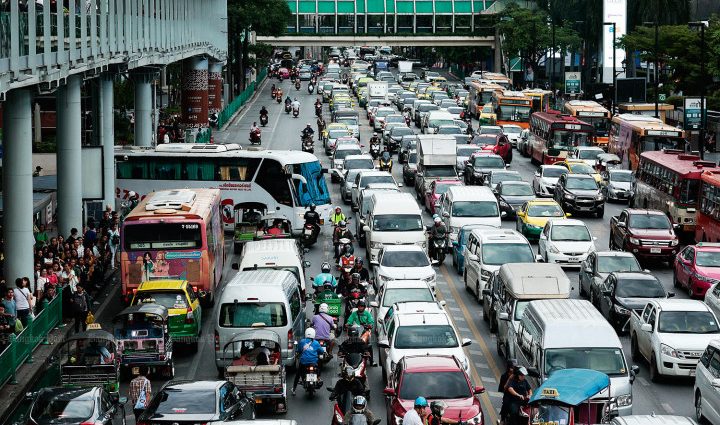MP questions who benefits from costs

The Ministry of Transport has denied opposition criticism that its planned traffic congestion charges will favour the private sector, saying that the policy is designed to be accountable.
Deputy Transport Minister Surapong Piyachote was responding to a question raised by Suphanat Meenchainan, Bangkok-MP of the opposition People’s Party, during a House meeting yesterday.
Transport Minister Suriya Jungrungreangkit has proposed a traffic congestion fee for motorists entering busy roads in Bangkok. The charges may range from 40 to 50 baht per vehicle for accessing congested roads served by electric train lines.
The fee will go towards a 200-billion-baht fund to buy back concessions from private companies that invest in electric train lines. The fund will finance a 20-baht flat-rate fare across all electric train lines after the buy-back. The 20-baht fare has already been launched on the Purple and Red lines operated by the State Railway of Thailand.
Mr Suphanat said the government had it all wrong. He said it should focus on solving problems with public buses, which are the primary mode of transportation, rather than imposing charges that drive more people to use electric trains to the benefit of private concessionaires.
The MP questioned the Ministry of Transport’s ability to reform the entire mass transit system within six months as promised. He said the chronic problem with extending bus transport coverage throughout the city has forced many commuters to take taxis instead.
“Why is it that the Ministry of Transport, directed by the ruling Pheu Thai Party, appears to be trying to generate money for the private sector, like electric train and expressway companies?” he asked.
“Are you at all confident that that you will succeed in tackling the mass transit problem?”
Responding to Mr Suphanat’s queries, Mr Surapong said that the ministry is working on measures to make the congestion fee collection method accountable. He added that the system will not benefit any business or investor.
According to the ministry’s report, 390,000 vehicles ply Bangkok roads daily, exacerbating air pollution by pushing up the PM2.5 fine dust particle levels.
The report showed that managing road transportation helps with pollution mitigation, and Mr Surapong said a traffic policy plan is created around this.

